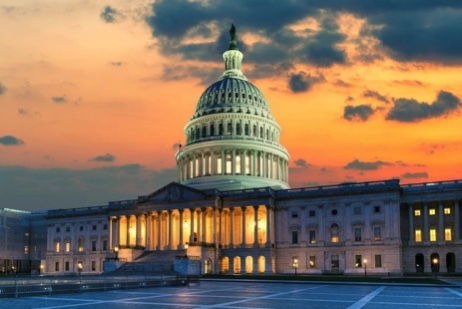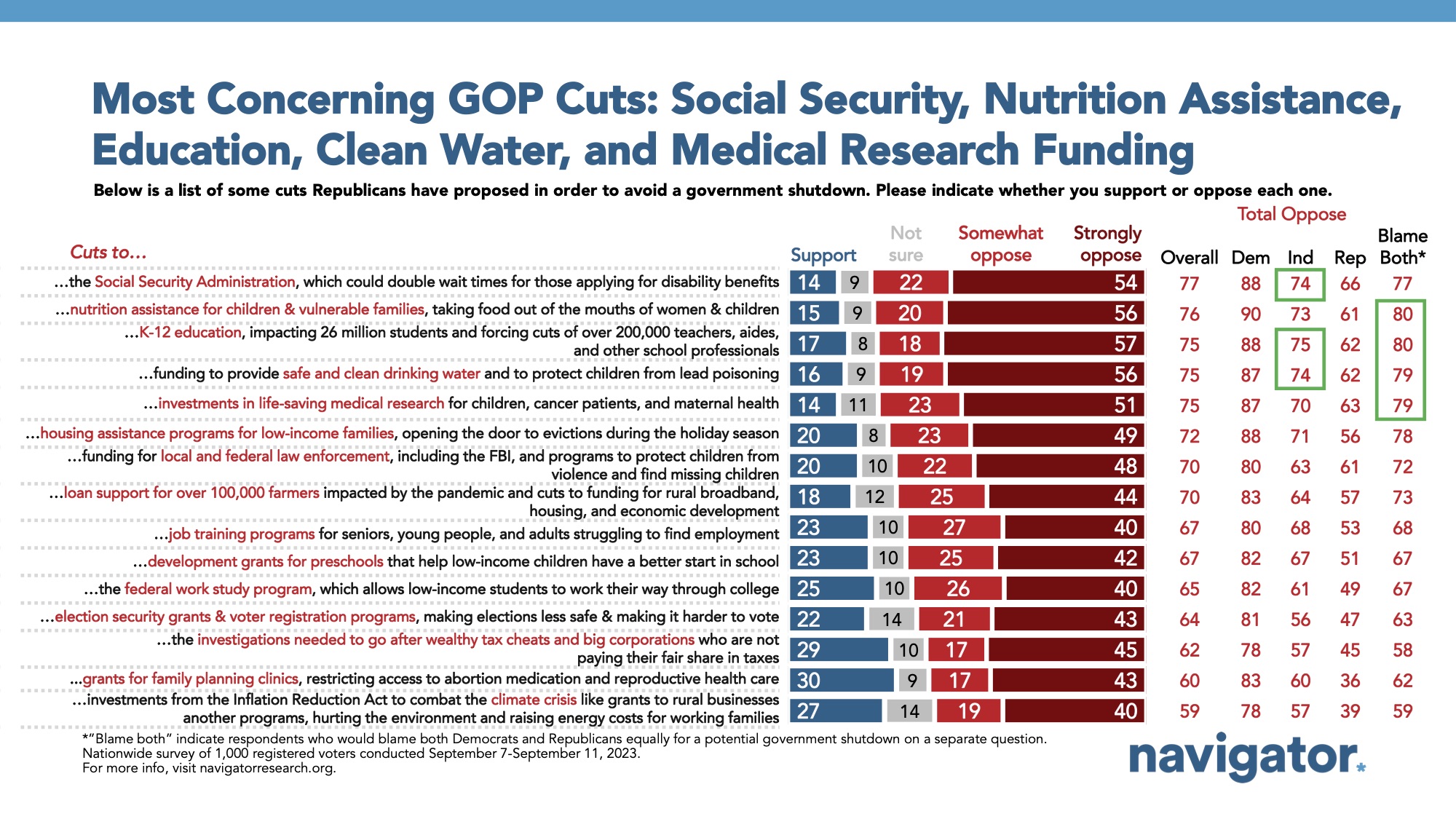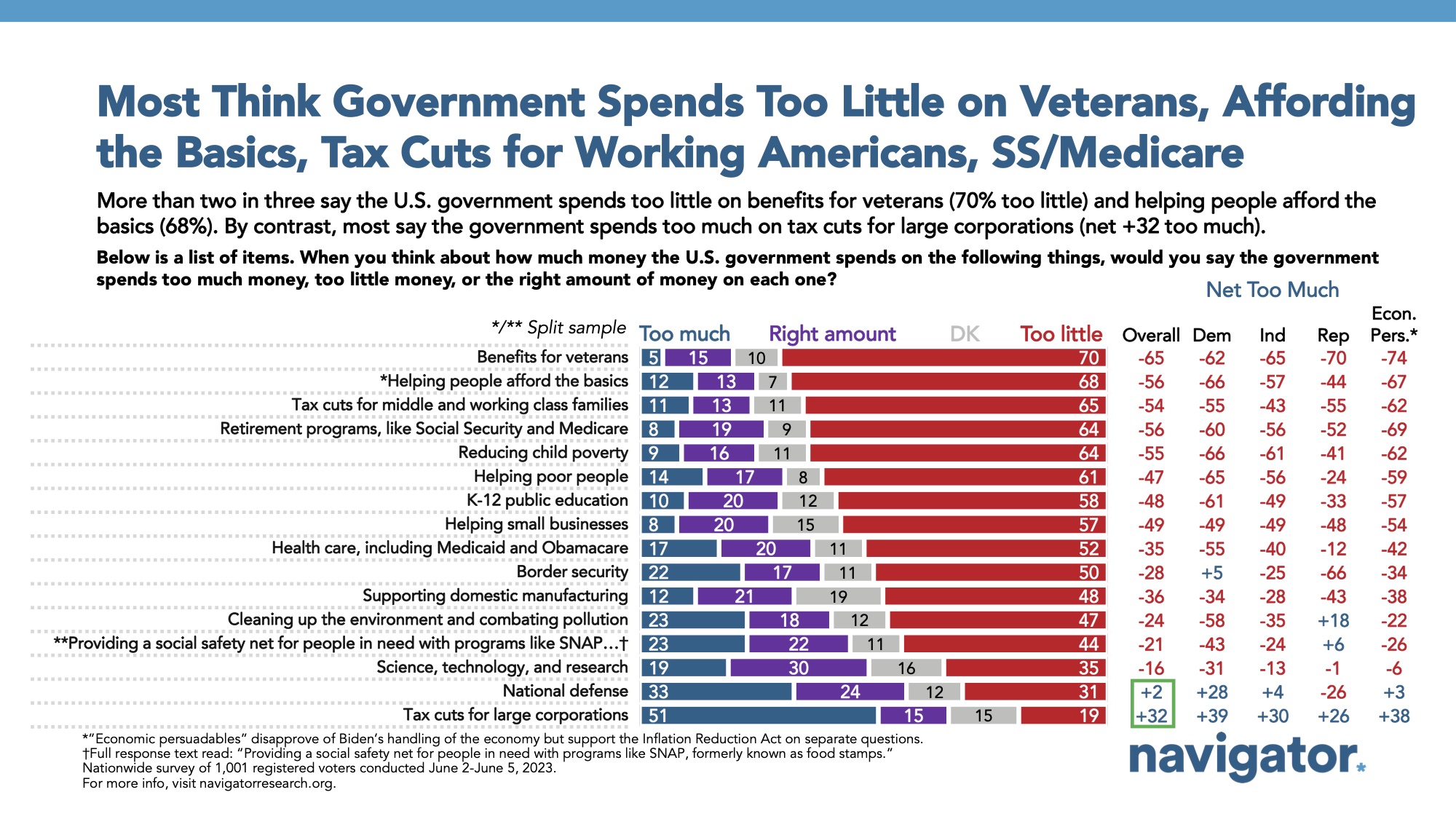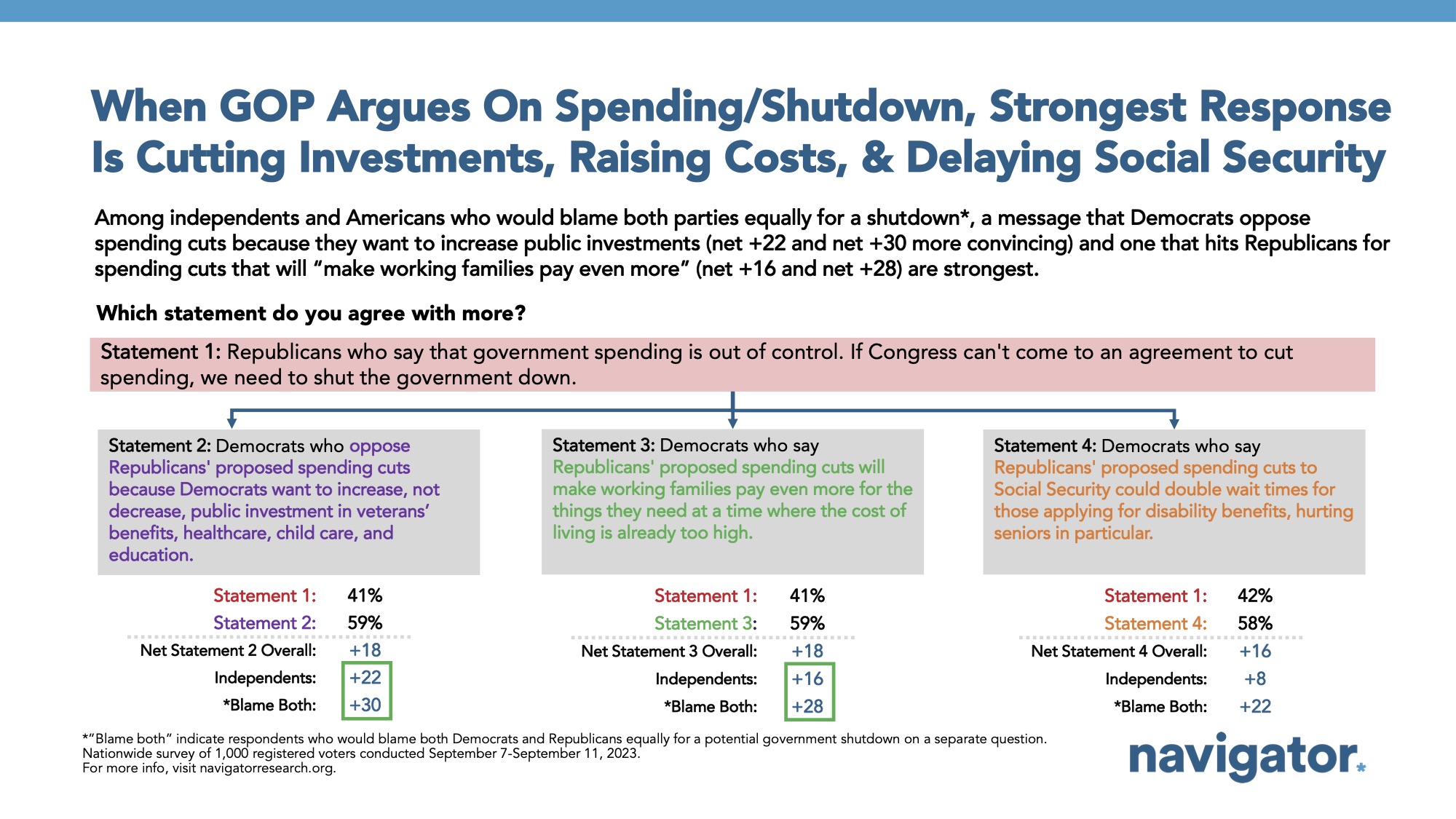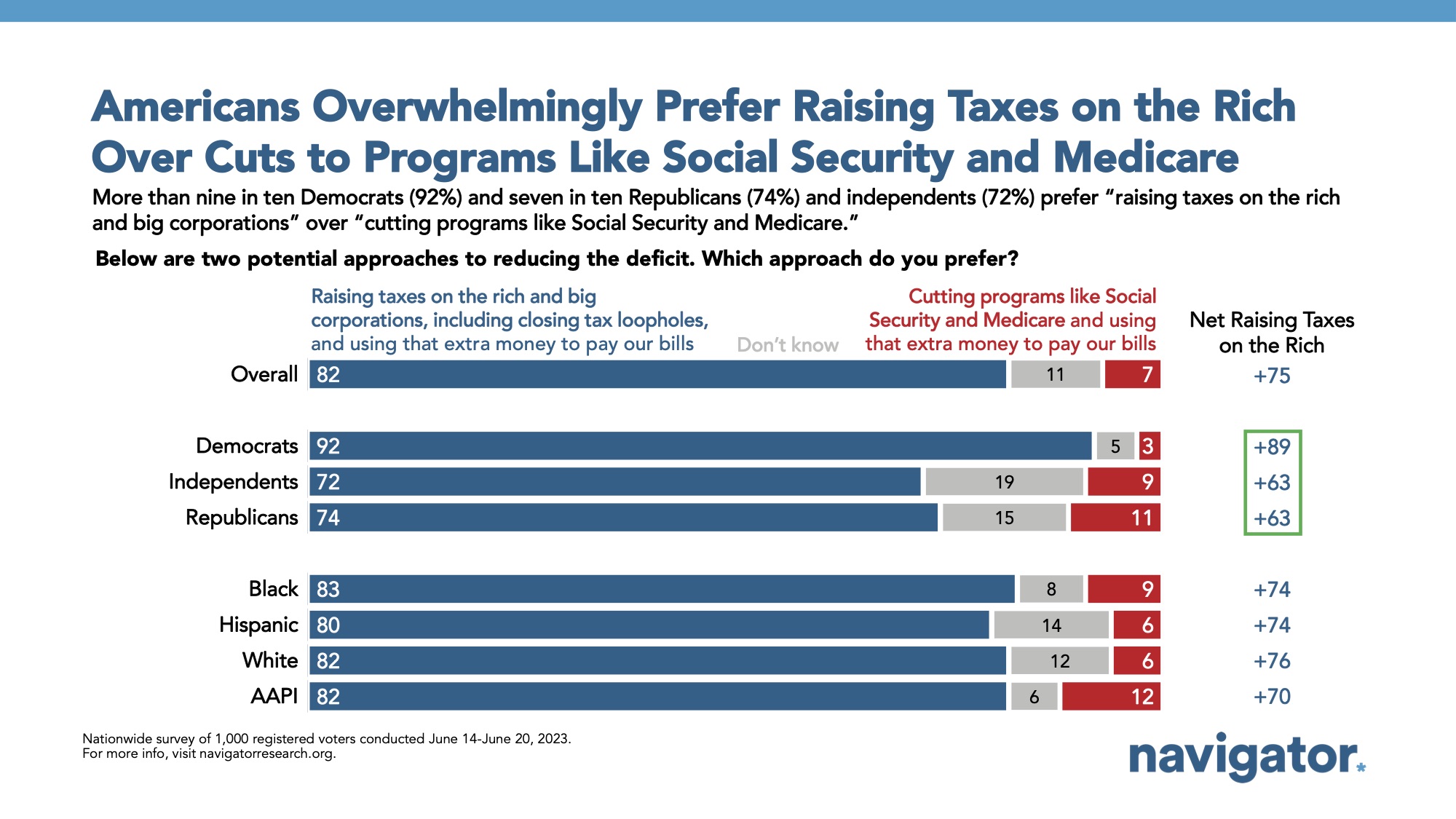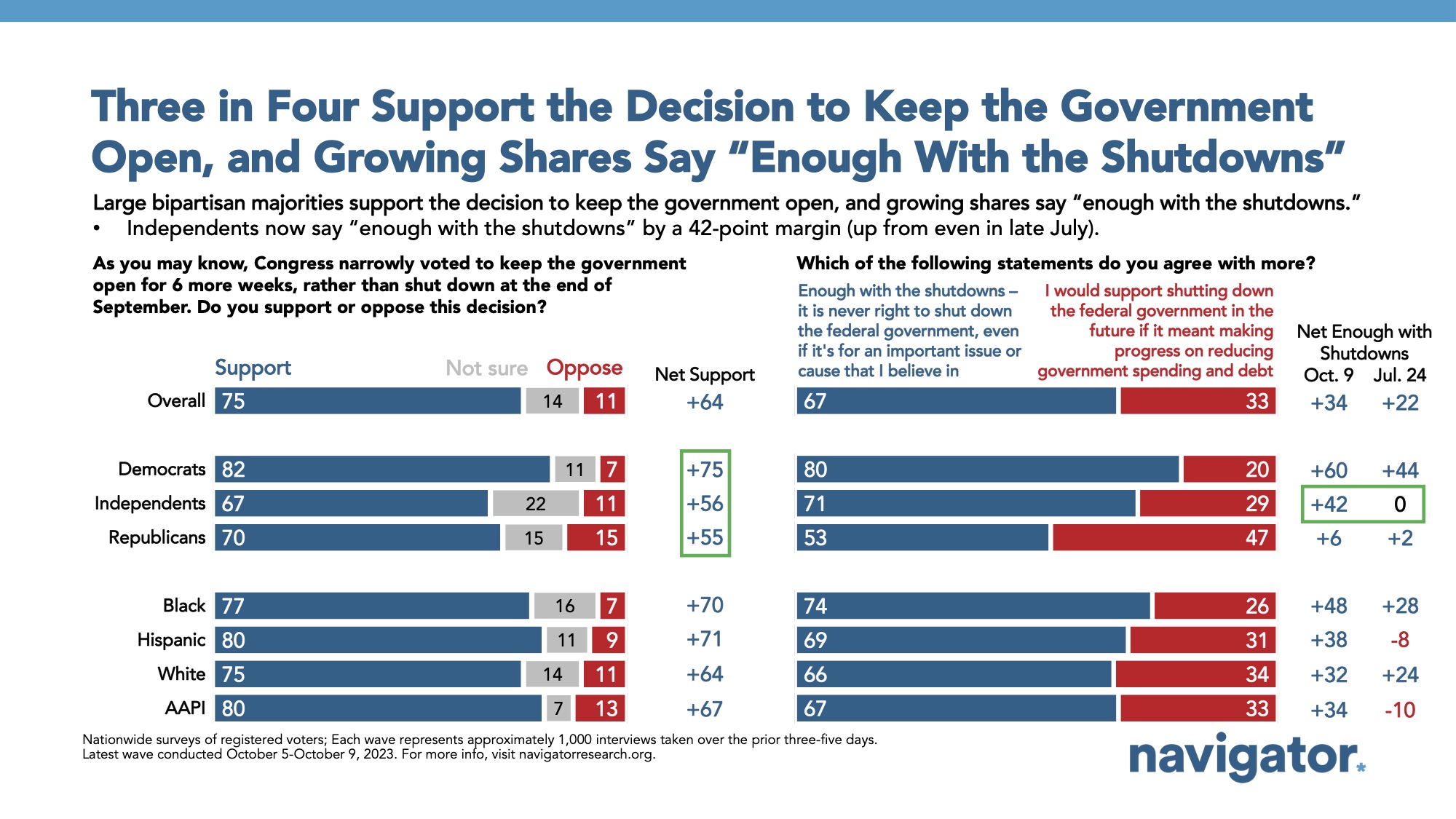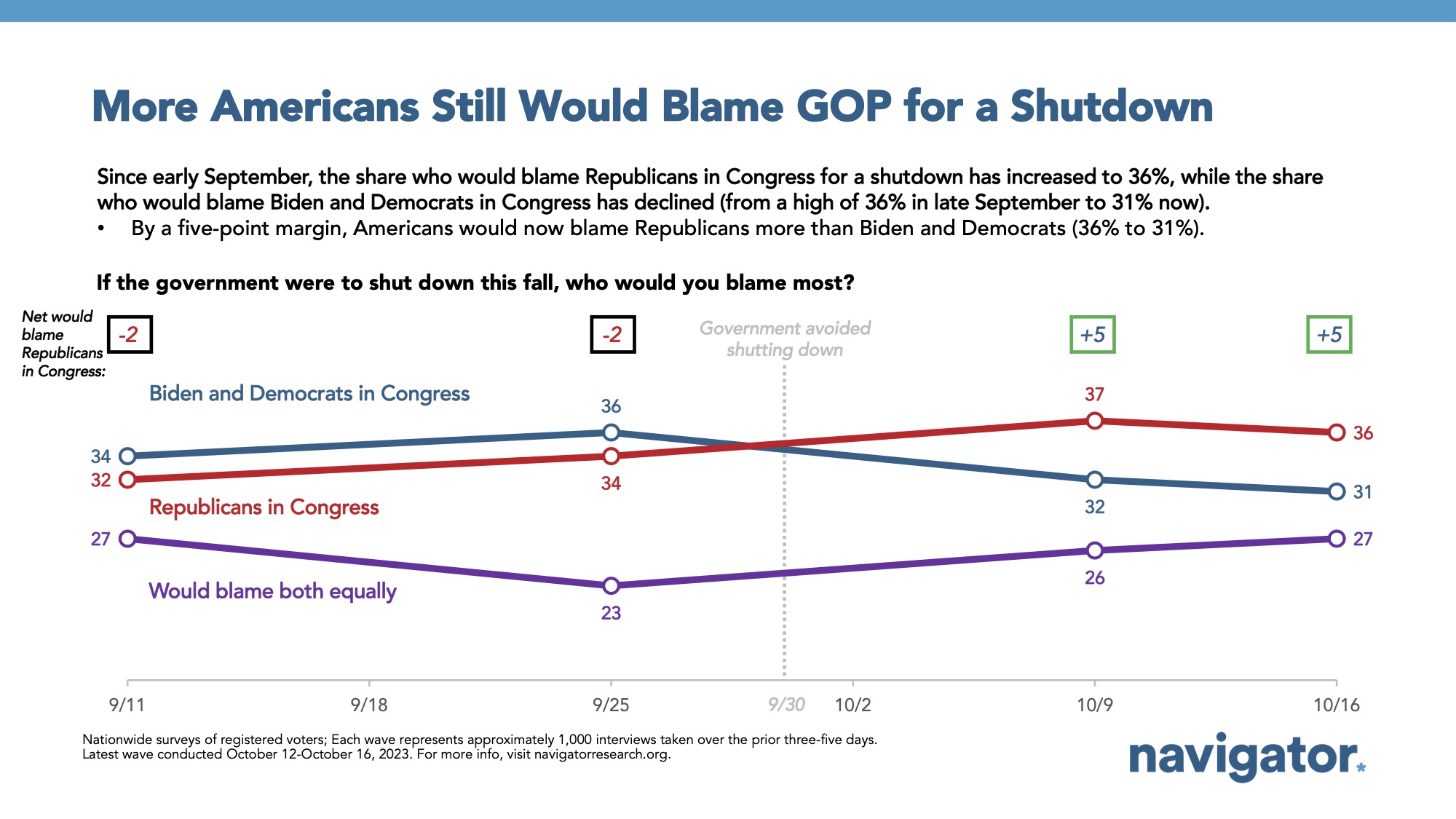Memo: Messaging on Government Shutdown
With Congress in another debate over government funding and the risk of a shutdown on the table, it is worth revisiting some of the key findings and insights Navigator Research has uncovered through months of seeking to understand Americans’ perceptions of a potential shutdown. Back in September, we argued that there were three guiding principles for how progressives should communicate about a government shutdown that we revisit here.
First, the public wants more—not less—public investment in programs like Social Security, Medicare, education, veterans’ benefits, and many more: Our research in September 2023 found that more than seven in ten Americans oppose cuts to programs like Social Security (77 percent), nutrition assistance (76 percent), K-12 education (75 percent), funding for safe and clean drinking water (75 percent), and investments in life-saving medical research. Moreover, among a list of 15 different things tested in a June 2023 survey, majorities of Americans said the federal government spent too little on almost all of those programs, with the only one where a majority said we spent too much was on “tax cuts for large corporations.”
Second, arguments that put the impacts on people front-and-center will always be more effective than arguments about process: Making the argument that we should be increasing spending in programs like veterans’ benefits, health care, child care, and education is a more effective rebuttal against arguments about “out of control” government spending by 18 points, while arguments that criticized Republican lawmakers for going back on their spending deal only won against the conservative spending arguments by just 6 points.
Third, Americans have a clear preference for raising taxes on the wealthiest Americans and big corporations over spending cuts. In our June 2023 research, by a 75-point margin, over four in five Americans preferred “raising taxes on the rich and big corporations, including closing tax loopholes, and using that extra money to pay our bills” (82 percent) over the conservative approach of “cutting programs like Social Security and Medicare and using that extra money to pay our bills” (just 7 percent).
Beyond these principles, it is essential to understand that the American people simply have no more patience for the constant brinkmanship being put forward by Republican lawmakers over funding the government. In July 2023, our research, found by a 22-point margin, 61 percent of Americans agreed more with the statement: “Enough with the shutdowns – it is never right to shut down the federal government, even if it’s for an important issue or cause that I believe in,” compared to just 39 percent who agreed more with the statement: “I would support shutting down the federal government in the future if it meant making progress on reducing government spending and debt.” By October, right as a shutdown threat had been diffused, there was a net 12 point increase favoring the “enough with the shutdowns” sentiment (67 percent) over shutting the government down to reduce spending (33 percent).
There is no reason to expect that there would not be a similar backlash toward a government shutdown today than there was three months ago, nor would there be any reason to expect blame wouldn’t start shifting toward Republican lawmakers as it did last fall.
